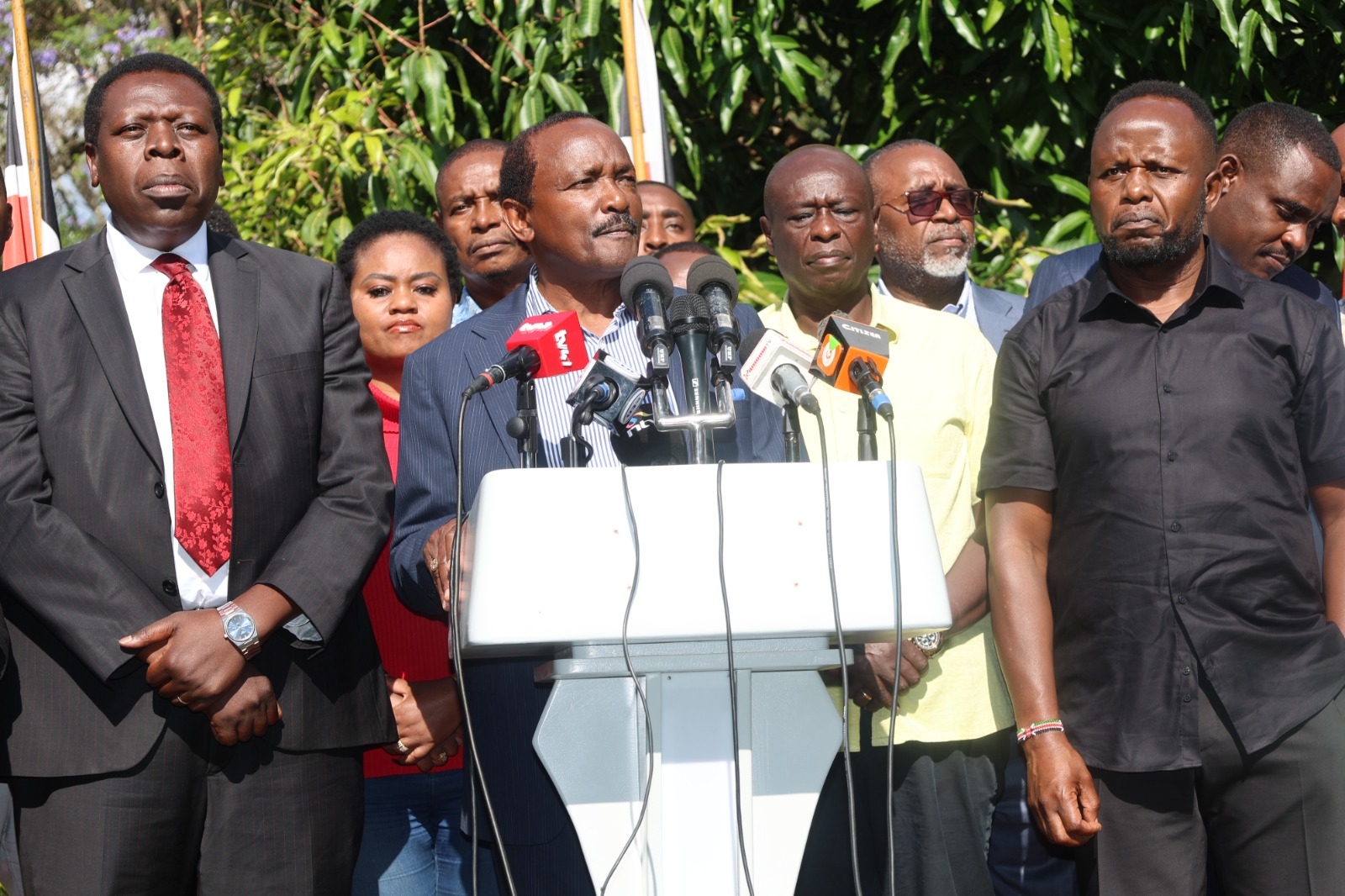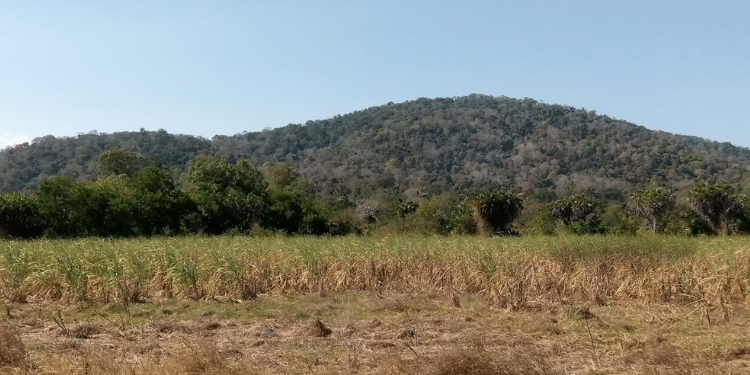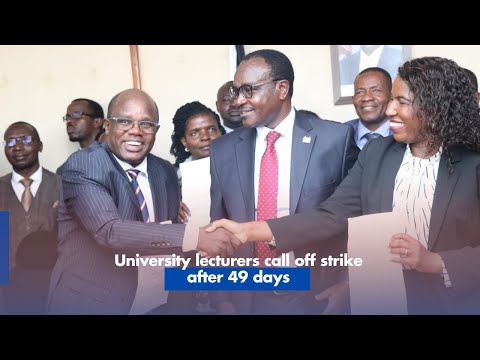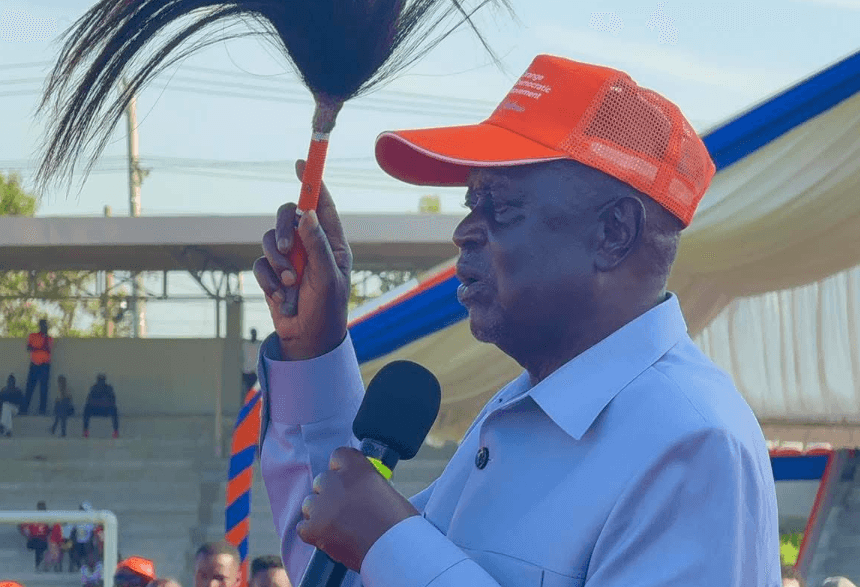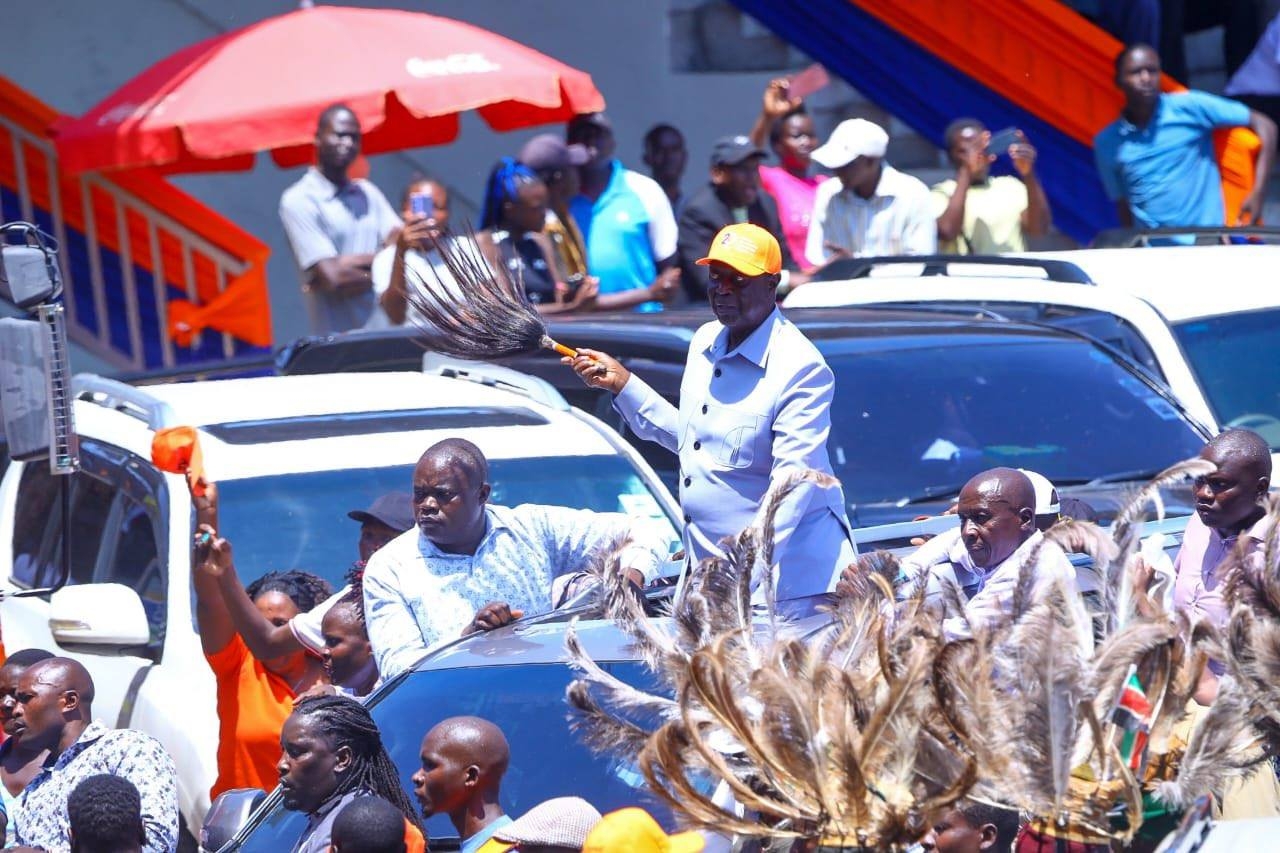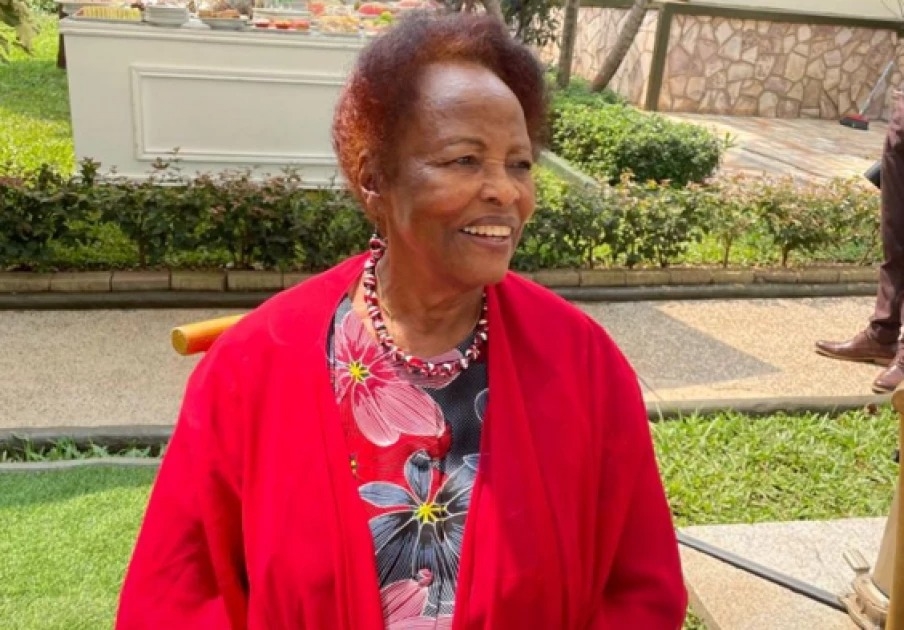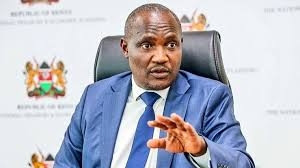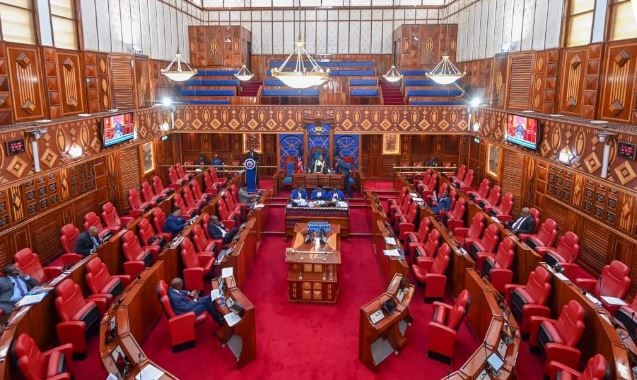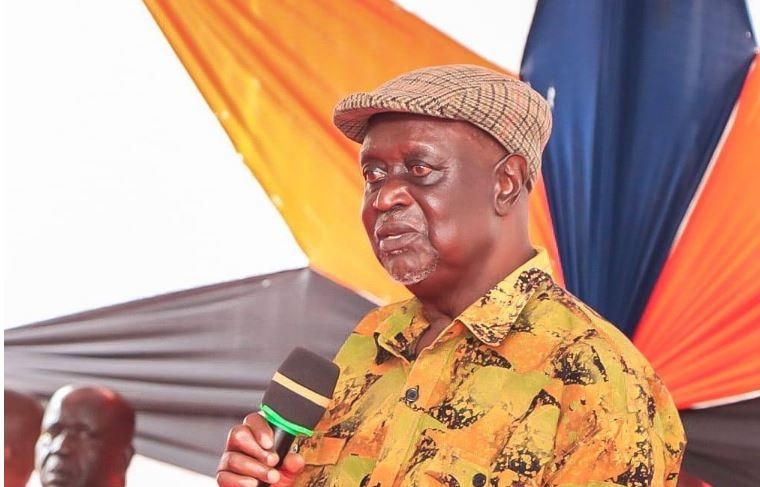A county executive job could be the dream of many Gen Zs. But managing Kenya's oldest department, the 120-year-old Nairobi City's Department of Health, can be a pressure cooker job.
This responsibility was thrust onto Suzanne Silantoi in July last year, when she was only 29 years old. She is the Health, Wellness and Nutrition executive in Nairobi City County.
Silantoi spoke to the Star's John Muchangi after one year on the job.
Please tell us about your background.
I was born and raised in Nairobi. I went to primary school here and high school in Moi Girls near Kibra.
I had a pretty basic childhood, just like most Nairobians. My family lived on Ngong Road for quite a bit. Then at some point, my parents moved towards Kiambu Road. So that's where I spent most of my childhood.
My parents run their own organisation. They are consultants. So my dad is a microfinance guy. My mum is actually a communications specialist. My dad is Samburu, my mum is Maasai. I think they met in campus. They also went to KU. I have one brother, I am the firstborn, and that's it.
Were you exposed to the political environment while growing up?
To the earliest of my knowledge, my grandad tried to become a councillor in 2002 in Samburu. That's the only thing I remember about politics in my life. But I've always been interested in politics because my dad used to make us watch the news. But I don't come from a political family.
So who are the people who inspired you in your life?
I think they've changed over time. When I was younger, I wanted to play sports, and one of my idols was Marion Jones, the American sprinter.
Then in campus I studied music. It's a mixture of classical, contemporary, and traditional music. When I got a bit older and I started understanding real issues, the people I admired were people like Martin Luther and Wangari Maathai.
Then eventually, of course, I came to look up to people like [Barack] Obama.
You ran for Senate in Nairobi in 2017 at the age of 23. What was in your mind?
I finished campus when I was 21. That’s because I started school like maybe a year younger than everybody.
So by the time I was finishing university, I had worked for three years actually through internships. Afterwards, I joined an NGO that did work in public health communication. It was my first real exposure with the public health system. Then the doctors were on strike, for three months, followed by nurses for another five months.
I was getting so frustrated at our leaders. Like, don't these people know how to run a system? In my head, I was like, grown-ups should know what to do.
So getting into the political year, I was like, I think there's something that needs to be done in this space. Why am I waiting for someone else to come? People might say it was a moment of madness. So I picked Senate because it was about devolution and defending devolution and just making sure devolution works. So I chose Nairobi because that’s where I come from.
Overall, it was a very uplifting experience because I ended up getting about 40,000 votes. And I thought, kumbe 40,000 people are actually looking for an alternative?
Why didn't you run again in 2022?
After 2017, I ended up getting into the African Union space and it just so happened that the theme of that year was about youth and politics.
So I got introduced into the activism space and policy space. It was a very steep learning curve to see a whole new world.
Therefore, I sought to learn, to understand how best can this be achieved. Within that period, we developed handbooks for how people can participate in policy.
I then did my master's in public policy in the University of York, United Kingdom. It really opened up my perspective to just what the world looks like, what policy is like, the difficulty, the complexity of systems and governance.
So when I came back, I decided I was going to join a winning team and go inside and be the change from the inside. So I decided to take a backseat, join the campaign, which is Governor Johnson Sakaja’s campaign.
Actually, your first appointment when Governor Sakaja took office in 2002 was to the Public Participation docket. Then in July last year, you came in as Health executive. How was it?
The first thing I thought was, wow, this place is rigid. I'm a creative. I like to operate around the edge. I like to push a bit of boundaries just to understand. But health is structured. Everything is like cast in stone.
Slowly, I came to understand the people who work here and why they are structured as they are.
It really helped that I got a team of people who were willing to be open to hearing. In health, they have this hierarchy of respect that I find very interesting. So they would respect me based on the position that I hold. Because of that, it allowed them to just hear me out, can we try this? What do you think about this?
What are some of the new ideas you tried?
So, my vision was just three things. To make sure that my staff are okay. If you go to a facility, do they even have a place to lay their head if they're on call? Do they have a place to change? Do you have a tea room? A lot of our facilities didn't even have toilets for staff, you know.
Secondly, customer satisfaction. Customer is key.
And then number three, we digitise everything. If you go to Mama Lucy, for example, you don't carry documents anymore. You walk into the facility, they log you into the facility. Then your number is called out, you go into the doctor's room, and he pulls up your records. After consultation, he refers you to the laboratory.
You walk to the laboratory, the lab pulls up your details. If you need to go to accounts, the accounts pull up your details.
So it also helps us with even managing our funds and sealing corruption holes.
And that has really helped us raise our revenue quite a bit. At the moment, our facilities that have user fees have generated about Sh1 billion this financial year, compared to the last financial year, where I think it was less than Sh800 million.
Are those funds utilised within those facilities?
This Sh1 billion is actually used within our facilities. We've created our procurement structures, our accounting structures, so that facilities can manage that money in an accountable way.
They don't have to wait too long for things to be procured centrally from City Hall. They don't have to wait. You know, it's small basic things. It could just be food or just a few more commodities required for cleaning services.
Talking about staff satisfaction, there has been understaffing in most facilities. Are you hiring more health workers?
Yes. We are recruiting about 1,600, but our ultimate goal is about 2,000 staff.
Also at the moment, we've partnered with the University of Nairobi so that our facilities can be teaching and referral facilities as well. You know, initially, for university-level medical programmes, students were only restricted to national facilities and only posted in county facilities when they are doing their internships.
But now their master's students, who they call registrars, can also be posted within our county facilities to learn.
You have also started equipment placement in some of your facilities. How does that work?
Our budgets are scarce. And health always is in need of very heavy investment.
So instead of us buying equipment, we just have a vendor come and place their equipment into our facility. They run the equipment. If they need to service it, they service it. But when users pay, we split the revenue.
The good thing about that is that one, I'm not putting in the initial investment. Two, the services is available. But also three, I raise some revenue from it as well.
It also allows us to keep up to date with the most recent technology. It also reduces the waste and the redundancy of buying equipment and then it becomes outdated.
For example, we have biochemistry equipment in Mbagathi, which allows us to sample patients, particularly those who are getting into surgery. Initially, we used to send them to KNH to do those tests and then come back to do the surgery. So it was very inefficient.
At the beginning, I could see a bit of contempt because of my age and maybe even my gender. It took a lot of learning and asserting for me to take charge and have my instructions taken seriously
As a young person with no health training, do you feel like an outsider managing health?
Some people think, maybe we need a doctor in this. The other thing I realised when I came to health is there are a lot of tough wars here because of the cadres.
Doctors have a certain view of nurses. Nurses think a certain way about medical lab technicians. They carry this baggage of their cadres. Which I find unfortunate.
And so, coming in as an outsider, someone who is not a doctor or a nurse, I don't belong to any of the cadres; just gave them a different voice to hear.
So, it doesn't look like I'm favouring the doctors or I'm favouring the nurses because I'm a nurse. It's just another voice. So, I found that to be very useful.
This is the oldest ministry in Nairobi. Health systems were set up first in Nairobi City County in 1904. Because of how long it has stayed, there's a very set structure of how things are done.
Because I've not been in that system before, it allowed me to question, why should this be done this way? You know, when people would just be like, this is how it's done.
I came into the ministry when I was 29, and most of my staff are above the age of 45.
Even most of the people who serve directly under me were quite older than me. And at the beginning, I could see a bit of contempt because of my age and maybe even my gender.
But it took a lot of preparation on my end, understanding, learning and asserting for me to just be able to take charge and have my instructions taken seriously.
But I was encouraged because you see, most of us in the administration are actually quite young. I think even the governor is maybe 39 years old.
Eventually, I've gained respect because of my work ethic and also respecting my staff.
I'm also brought up in an African culture. I cannot disrespect people who are older than me or anybody for that matter.
Are there people who tried to take advantage of you based on your age, or because you had never worked in government before?
I had my guard up quite a bit. So it took me a while before I did anything, I really had to really process it and make sure I asked two or three people or confirm and confirm until I do it.
The one pitfall I know I fell into at some point was someone made me sign something that I shouldn't have signed. But it wasn't financial, it was about the movement of people. And it wasn't illegal or unprocedural, it's just that I wasn't too sure of that signing, but they wanted to take advantage of my signature to write on that it has been approved.
So now I'm more keen and if I'm unsure, I ask the right people.
Health docket can be psychologically draining, even at the national level. How do you handle that as a young person?
The top leadership is a very isolating space. Many people see you as an opportunity and not too many people really care about your well-being or even try to understand the challenges you're going through.
The thought process is always that for as long as you're being paid using our taxes, you best know what you're doing. A lot of times there's so much criticism that comes your way.
The number of times we get an applause are few, regardless of what you do. But it has also made me be comfortable in being misunderstood. Because you know you mean well and you've researched and you know this is the right thing and this is legally okay.
But some people will always have this perception that you're doing the wrong thing, you're just trying to steal money. It took me a while to just be okay to be misunderstood as long as you do the right thing.
What's your advice to young people who find themselves in such a critical leadership position?
Talk to someone. I was very lucky to find a couple of ladies who held my hand. One of them is the MP for Dagoretti North, Beatrice Elachi. There was a time she looked for me because she was seeking advice about a health centre in her constituency.
She looked at me and she was like, are you okay? I was like, actually, I'm not very sure. She was like, no listen, it's okay and you will get it right and you don't have to beat yourself up about it. At some point she was a speaker in the Nairobi county assembly during a very chaotic time. She was also an assistant minister. She told me, look, people do these kind of things but it's okay. She kept reaching out. Those conversations really helped me.
So my advice is, get someone you can talk to, someone you can be honest with about your struggle. As a young person, you're always trying to prove a point as to why you're here, and in proving this point, you want to look like, 'Of course, I know what I'm doing.'
I would never advise anybody to look like they don't know what they're doing. But you need someone to at least be honest with yourself and just ask for guidance. The thing is, learning does not end. You keep learning everyday.


